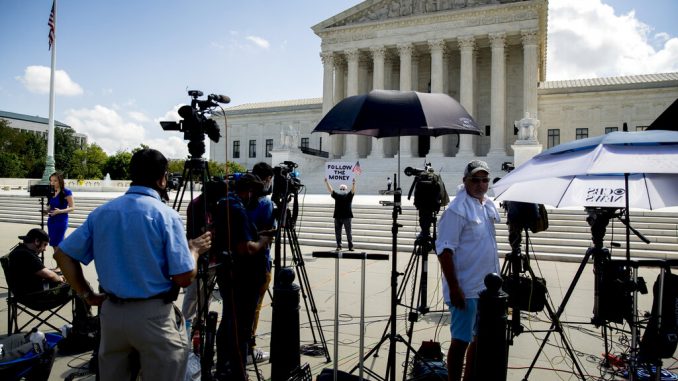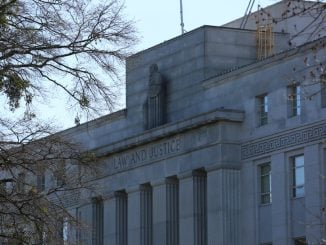
WASHINGTON, D.C. — The Supreme Court issued a mixed verdict Thursday on demands for President Donald Trump’s financial records that will keep his tax returns, banking and other documents out of the public eye for the time being.
By 7-2 votes, the justices upheld the Manhattan district attorney’s demand for Trump’s tax returns, but kept a hold on Trump’s financial records that Congress has been seeking for more than a year.
But Trump, who has sought to keep his personal financial records private, didn’t immediately regard the outcome as a victory.
“The Supreme Court sends case back to Lower Court, arguments to continue. This is all a political prosecution,” Trump wrote in a series of tweets that followed the court rulings.
The justices rejected arguments by Trump’s lawyers and the Justice Department that the president is immune from investigation while he holds office or that a prosecutor must show a greater need than normal to obtain the records. The tax returns are being sought as part of a grand-jury investigation.
Because the grand jury process is confidential, the rulings make it likely that none of Trump’s financial records will become public soon.
Trump’s two high court appointees, Justices Neil Gorsuch and Brett Kavanaugh, joined the majority in both cases along with Chief Justice John Roberts and the four liberal justices. Roberts wrote both opinions.
“Congressional subpoenas for information from the President, however, implicate special concerns regarding the separation of powers. The courts below did not take adequate account of those concerns,” Roberts wrote in the congressional case.
The ruling returns the cases to lower courts.
Justice Samuel Alito, who dissented with Justice Clarence Thomas in both cases, warned that future presidents would suffer because of the decision about Trump’s taxes.
“This case is almost certain to be portrayed as a case about the current President and the current political situation, but the case has a much deeper significance,” Alito wrote. “While the decision will of course have a direct effect on President Trump, what the Court holds today will also affect all future Presidents—which is to say, it will affect the Presidency, and that is a matter of great and lasting importance to the Nation.”
Manhattan District Attorney Cyrus Vance Jr. said his investigation, on hold while the court fight played out, will now resume.
“This is a tremendous victory for our nation’s system of justice and its founding principle that no one — not even a president — is above the law. Our investigation, which was delayed for almost a year by this lawsuit, will resume, guided as always by the grand jury’s solemn obligation to follow the law and the facts, wherever they may lead,” Vance said.
The case was argued by telephone in May because of the coronavirus pandemic.
The fight over the congressional subpoenas has significant implications regarding a president’s power to refuse a formal request from Congress. In a separate fight at the federal appeals court in Washington, D.C., over a congressional demand for the testimony of former White House counsel Don McGahn, the administration is making broad arguments that the president’s close advisers are “absolutely immune” from having to appear.
The subpoenas are not directed at Trump himself. Instead, House committees want records from Deutsche Bank, Capital One and the Mazars USA accounting firm. Mazars also is the recipient of Manhattan District Attorney Cyrus Vance’s subpoena.



